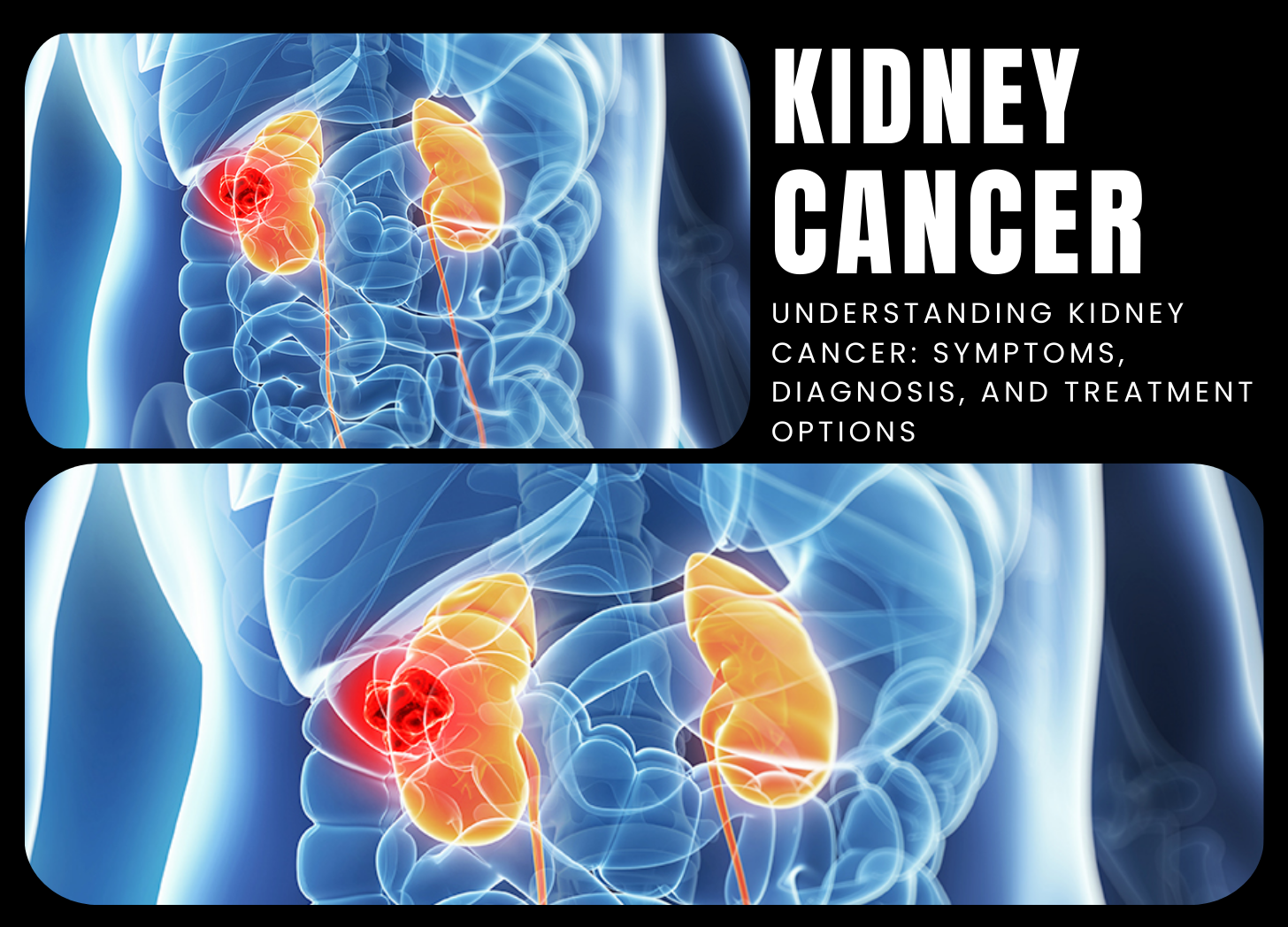Contact Us
Contact Us

Kidney cancer, also known as renal cell carcinoma (RCC), is a kind of cancer that develops in the kidneys, the bean-shaped organs that filter waste from the blood and produce urine. Kidney cancer can develop in one or both kidneys and is divided into numerous categories based on the specific cells involved and the tumor’s features. Renal cell carcinoma is the most prevalent type of kidney cancer, accounting for around 90% of all occurrences; less frequent varieties include transitional cell carcinoma and Wilms tumor, which primarily affects youngsters.
The actual origin of kidney cancer is frequently unknown, although several risk factors can raise the likelihood of acquiring the disease. These risk factors may include smoking, obesity, high blood pressure, a family history of kidney cancer, genetic conditions (such as von Hippel-Lindau disease or hereditary papillary renal cell carcinoma), long-term dialysis treatment, exposure to certain chemicals (such as asbestos or cadmium), and certain rare genetic syndromes.
The symptoms of kidney cancer vary based on the tumor’s size, location, and stage. Common symptoms include blood in the urine (hematuria), pain or discomfort in the side or lower back, an abdominal bulge or mass, unexplained weight loss, exhaustion, fever, swelling of the legs or ankles, and elevated blood pressure. However, in other situations, kidney cancer may not produce any symptoms and may be discovered unintentionally during imaging examinations performed for other medical reasons.
Kidney cancer is often diagnosed using a combination of medical history, physical examination, imaging studies (such as ultrasound, CT scan, MRI, or PET scan), and biopsy to confirm the presence of malignant cells in kidney tissue. Laboratory testing (such as blood tests) can be used to evaluate kidney function and discover indicators associated with kidney cancer. Genetic testing and molecular analysis may also be used to detect specific genetic mutations or chromosomal abnormalities linked to certain types of kidney cancer.
Treatment for kidney cancer is determined by a variety of criteria, including the tumor’s kind, size, location, and stage, as well as the patient’s overall health and preferences. Surgery to remove the tumor (either partial or radical nephrectomy), targeted therapy, immunotherapy, radiation therapy, chemotherapy, or a combination of these treatments are all possible possibilities. The goal of treatment is to eliminate or shrink the tumor, prevent it from spreading to other regions of the body, and improve the survival rate and quality of life for people with kidney cancer.
In conclusion, kidney cancer is a type of cancer that begins in the kidneys, impairing their function and generating a variety of symptoms. Early detection, correct diagnosis, and appropriate intervention are critical for optimizing outcomes and improving survival rates in people with kidney cancer. Healthcare providers and communities can help persons afflicted by kidney cancer by raising knowledge about its symptoms and supporting access to appropriate medical care and treatment alternatives.
References:
1.American Cancer Society. (2022). Kidney Cancer. Retrieved from https://www.cancer.org/cancer/kidney-cancer.html
2.National Cancer Institute. (2022). Kidney Cancer–Patient Version. Retrieved from https://www.cancer.gov/types/kidney
Post a Comment